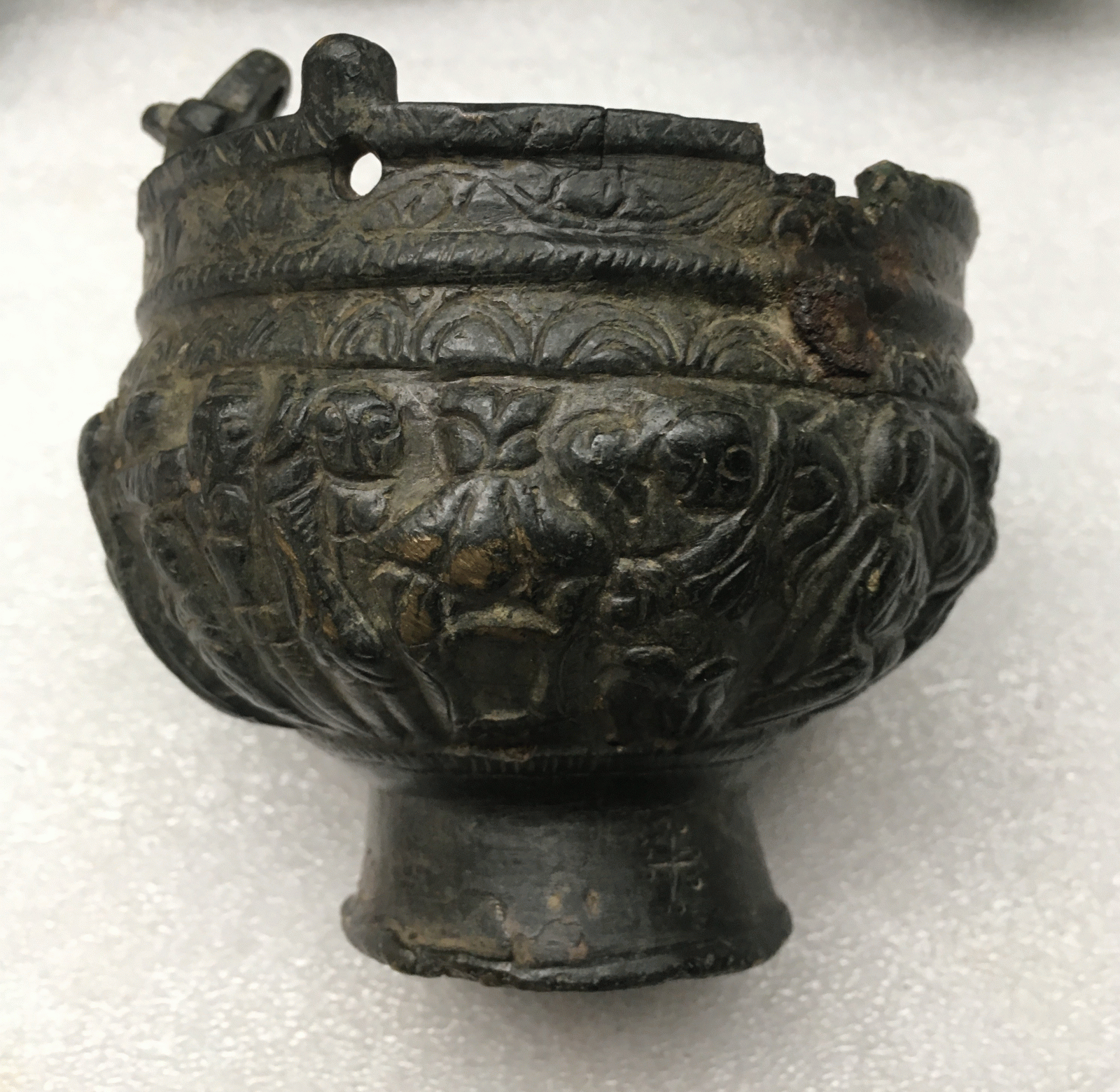KHI 2021+ Lecture Series
Beate Fricke: Fragrant Flotsam

BRE 643 censer (Marys at the empty tomb), Syria (?), 7th century (?), 10.4 x 8.2 cm (without eyelets) x 5.7 cm, Antikenmuseum Basel.
Seven bronze censers were donated by Friedrich Ludwig Breusch to the Antikenmuseum Basel in 1971. Since then, these censers have been described as Byzantine, even though their makers were not necessarily deeply immersed in emerging Christian culture; these works were likely part of an early mass-production of bronze objects marketed to pilgrims by Syrian craftsmen. Since no written sources speak for the objects, we must listen closely to what they tell us through their appearance, the traces of their use, contemporary objects revealing information about censers, and the paths taken by the bronze censers as they traveled through the past. Their decoration, which consists of cycles featuring the life of Christ, differs from earlier censers, and raises important questions about the rise of narrative imagery in religious art and their original use. The healing power of incense, as well as the censers' references to specific sites and the potential links between their shape and the ritual and spaces in which they were used have not been addressed in the extant scholarship. Furthermore, these factors point to an opposition between profane and religious ancient cultures, and speculations about acculturation or a coexistence of different cultures in early Christianity. However, the censers also feature marks of their makers at the bottom. Comparing these marks to similar features on Islamic metal works with inscriptions helps us to understand why these early examples display such a practice.
Beate Fricke's research focuses on the history of sculpture, image theory and the veneration of images in the Middle Ages, relics and treasure objects in Early and High Medieval Art, as well as objects as archives of a history of applied arts, materiality, knowledge transfer, and trade in the global 'Middle Ages'. Before joining the University of Bern in 2017, she was Professor for Medieval Art at the University of California, Berkeley. She is Principal Investigator of the research project Global Horizons in Pre-Modern Art, Universität Bern, funded by the European Research Council (ERC Consolidator Grant 2018–2024, www.global-horizons.ch). Currently, she is editor-in-chief of the journal 21: Inquiries into Art, History, and the Visual. Beiträge zur Kunstgeschichte und visuellen Kultur (https://21-inquiries.eu/en).
This talk is part of the KHI 2021+ Lecture Series, organized by the doctoral and postdoctoral fellows, in collaboration with scientific staff and senior scholars of the Institute. It is envisioned as a forum to reflect on the futures of Art History through conversations with innovative voices in the discipline, working in different areas but sharing methodological concerns.
12. Januar 2021, 15:00 Uhr
KHI 2021+ Lecture Series
The event takes place online.
Hinweis
Diese Veranstaltung wird durch Fotografien und/oder Videoaufnahmen dokumentiert. Falls es nicht Ihre Zustimmung findet, dass das Kunsthistorische Institut in Florenz Aufnahmen, auf denen Sie erkennbar abgebildet sein könnten, für die Veranstaltungsdokumentation und Öffentlichkeitsarbeit (z.B. Social Media) verwendet, bitten wir um eine entsprechende Rückmeldung.


